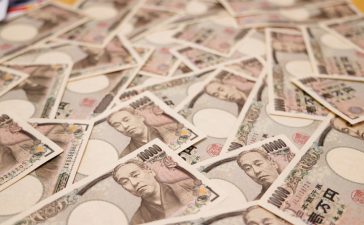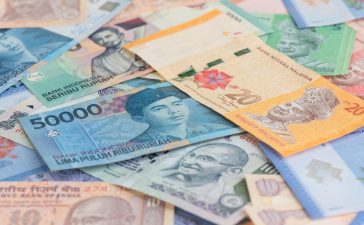The Malaysian ringgit, the South Korean won and Indonesian rupiah gained 0.3 per cent each, and the Taiwanese dollar added 0.5 per cent
Most emerging Asian currencies and stocks were higher on Monday, as investors evaluated remarks from Fed Chair Jerome Powell that reaffirmed expectations that the U.S. monetary tightening cycle has come to an end.
The Malaysian ringgit, the South Korean won and Indonesian rupiah gained 0.3 per cent each, by 0323 GMT. Taiwanese dollar led the pack, adding 0.5 per cent.
While stocks in Bangkok, Manila, and Seoul added more than 0.3 per cent, each, those in Jakarta gained around 1 per cent, reaching their highest level since October last year.
Risk appetite improved on expectations the next move by the Fed will be to cut rates, with Fed Chair Jerome Powell on Friday declining the opportunity to push back hard against aggressive market pricing.
All eyes will be on the November U.S. jobs report on Wednesday that could influence the outlook for U.S. interest rates.
The U.S. dollar index, which tracks the currency against six major rivals, was last hovering around Friday’s close at 103.28. The index shed more than 3 per cent of its value in November, aiding emerging Asian assets regain some lost ground.
While risk currencies may remain buoyed ahead of next week’s FOMC (Federal Open Market Committee), “risk on” may not be unequivocally bold in shorting the USD either, Vishnu Varathan, head of economics and strategy at Mizuho Bank wrote.
Thailand’s baht slipped 0.4 per cent, and the Indian rupee traded largely flat.
Recent volatility in oil prices over the conflict in the Middle East and uncertainty over OPEC+ voluntary output cuts have dented confidence in net oil importing countries such as India and Thailand.
Markets will be watching out for a slew of regional inflation data due later this week, with the Philippines on Tuesday, Taiwan on Wednesday, and Thailand on Thursday.
In China, the yuan was largely flat after the People’s Bank of China set another firm fix for the local unit.
The yuan continues to be supported by the soft USD environment but its domestic fundamentals paint a less upbeat picture, HSBC analysts stated in a note.





